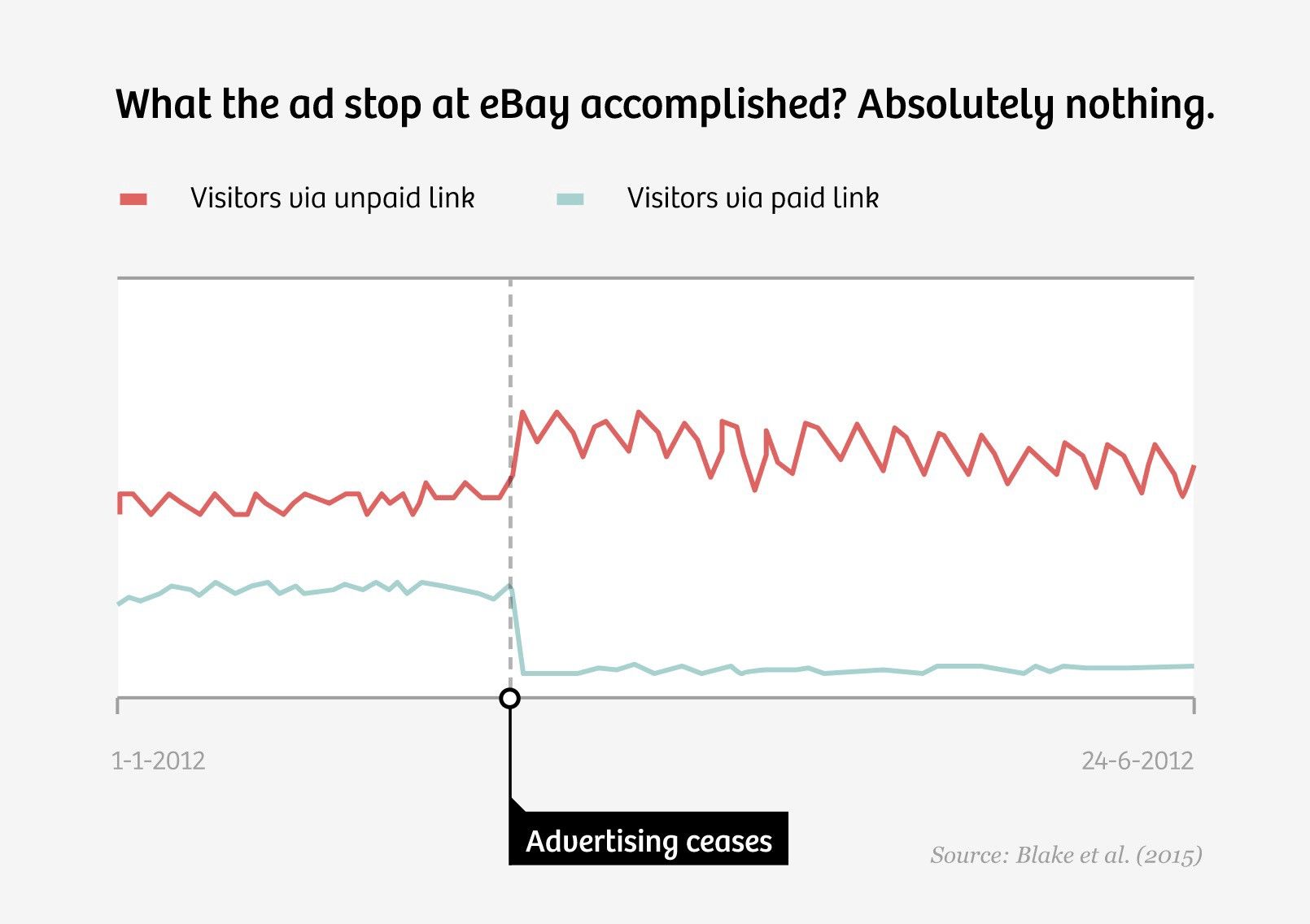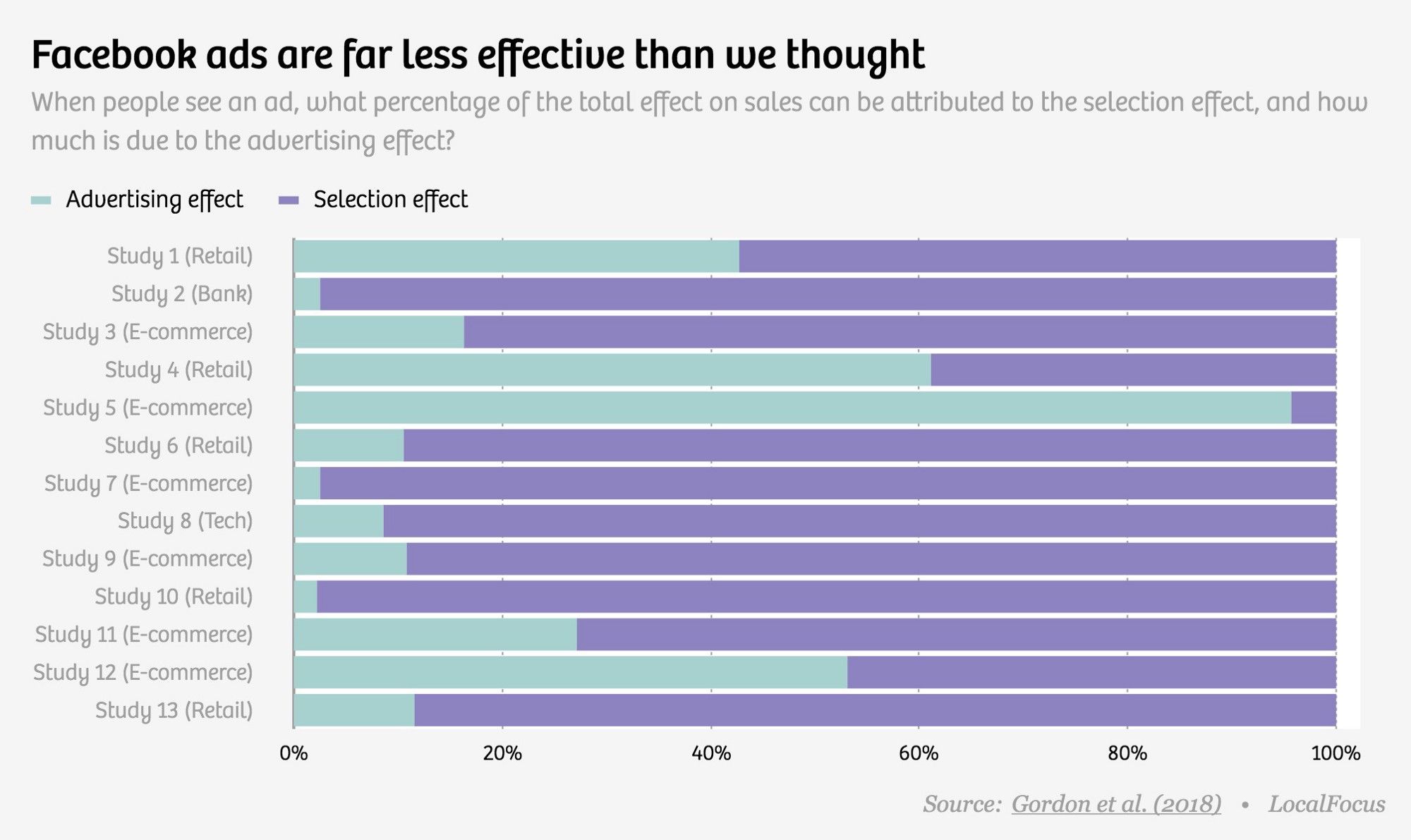Why #StopHateForProfit Is An Existential Threat To Facebook
Because Facebook ads don’t work

Like Ace Rothstein said, “In the casino, the cardinal rule is to keep them playing and to keep them coming back.” It’s the same thing with online advertising. If the customer stops for a minute, they’ll notice that sales don’t change. And then they’ll never come back.
That’s the real threat of #StopHateForProfit. It’s not that Facebook is temporarily losing accounts for ethical reasons, it’s that they’ll lose them permanently, for business ones.
The deadly experiment
The #StopHateForProfit movement has gotten big accounts like Coca Cola, Unilever, Verizon to pause Facebook ads. This is for good reason, but the reason doesn’t matter. The result is a simple experiment.
If we stop advertising, how does that affect sales?
For most of these companies, sales will be the same. People are still going to, like, use shampoo without seeing an ad for 2 seconds. Then the question at the next board meeting will be,
What are we paying Facebook for?
Forget the bad PR, Facebook doesn’t give a shit, they’re quite happy being the new Philip Morris or Fox News. The biggest threat is that the shmucks are leaving the casino. They’re going to have a shower, sober up, and leave the penny ad slots alone.
This experiment is Facebook’s worst nightmare.

In 2011, Steve Tadelis got eBay ran this very experiment. As a test, eBay completely stopped search advertising. The marketing department was freaking out, but nothing happened. All of the traffic they were paying for just came for free. For every dollar eBay spent on search, it turned out that they were losing 63 cents.
“It’s very hard to change behaviour by showing people pictures and movies that they don’t want to look at.” (Garrett Johnson)
Online ads simply aren’t that effective, and all the data they produce is a smoke-screen. Selection bias is rampant across online advertising. They capture people that were going to buy anyways and take the credit (and their cut). Your marketing department is happy because they get a report saying that they did something. Everybody is happy, but nothing actually happened. Sales just moved from your organic pocket to Facebook/Google’s paid one.
How many times do you search for a brand and see an ad? The brand is literally paying to protect the first search result. You were going to find them anyways. How many times does an item you’ve already put in your shopping cart follow you around on FB? You were already going to buy that thing.
A lot of online advertising is like standing in a nightclub line, handing out flyers for the nightclub. You’re going to get a lot of conversions. It’s called selection bias. Online advertising isn’t optimized for your sales. It’s optimized for theirs.
Bing, Yahoo, and Google were just charging eBay rent for their own brand name. When they stopped the ads, the people showed up anyways.
Another study (from inside Facebook) showed similar results there.

Economists working directly with Facebook ran experiments on selection effect vs. advertising effect. In most cases, selection effects were stronger, sometimes 50x more.
For these cases, if you stop advertising on Facebook, nothing happens. You think Facebook is delivering sales for you, but they’re only delivering sales for Facebook. The only time you see it is if you stop.
At eBay, Tadelis only got the chance because they were in a dispute with Microsoft, and were happy to cut off Bing and Yahoo. Nothing happened. They were like, “wait what”, and cut off Google. Still nothing.
No marketing department is going to suggest this, because what reports would they forward! When some external event happens, however, suddenly management can see. #StopHateForProfit is that external event, across hundreds of advertisers. It’s like an ethical power outage at the casino. Brands have wandered out and are now blinking in the sun.
Why big brands don’t need Facebook
I’m not saying that FB ads are completely useless. My cousins sell mangoes out of a truck. Facebook ads are useful to them because they’re a few guys with a mangoes and a truck. Nobody knows who they are.
However, we know who Coke or Unilever are. It’s not clear that spending millions of dollars on Facebook does anything for them at all. Facebook floods them with data, but a lot of that is their own customers, fed back to them. There’s no connection to the P&L. Until now.
Some of these companies have committed to stop for the rest of the year. They’re going to get at least two-quarters of clear sales data sans Facebook. About as clear an A/B test as you can get. I’d bet you a kilo of mangoes that sales will be the same.
Then the next board meeting won’t be about Facebook’s issues with hate. It’ll be that they don’t seem to deliver any profit.
Strictly business
Note that I haven’t even touched on the real ethical reasons for #StopHateForProfit. For the purposes of this experiment, they’re irrelevant. This is strictly business. It’s just an A/B test.
For companies, the real threat is that it’s hate for NOT profit. You’re not selling product, AND pissing people off. Advertising on Facebook is like sticking your branding on a bomb. It doesn’t sell any more Coke, and the people under it are furious.
Brands will work with unethical companies, but they won’t work for ones that don’t make them money. Facebook could do some bullshit to appear ethical again, but they can’t actually move Coke’s sales numbers. That’s the existential threat. The house always wins in the casino, but people only see that when they go home. All the whales are going home.
Some brands will still come back because the marketing department is in on the scam, but a lot of them won’t. It’s just not worth the aggravation. They could just buy a billboard. Maybe it’s useless, but at least it won’t regularly fall on people and show dead bodies under your logo.
That’s why #StopHateForProfit is an existential threat. Facebook could give a shit about their reputation for hate. They do care about their reputation for profit. In about two quarters, in board rooms across the world, that’s about to go away.